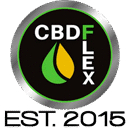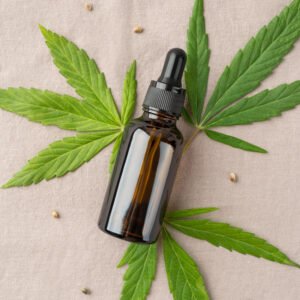Decoding the Drops: Understanding the Difference Between Hemp Oil and CBD Oil
In the ever-evolving landscape of wellness, hemp oil and CBD have emerged as popular natural remedies. While often used interchangeably, these two oils…
In the ever-evolving landscape of wellness, hemp oil and CBD have emerged as popular natural remedies. While often used interchangeably, these two oils are distinctly different in their source, composition, and intended uses. Understanding the nuances between hemp oil and CBD is crucial for making informed decisions about your health and well-being. This comprehensive guide will delve deep into the differences, helping you navigate the world of cannabis-derived products with clarity.
What is Hemp Oil? The Nutritional Powerhouse
People often refer to hemp seed oil as hemp oil, which they extract from the seeds of the hemp plant (Cannabis sativa). This extraction process, typically cold-pressing, produces a nutrient-rich oil that people celebrate for its impressive nutritional profile. Think of it as a superfood oil, packed with essential fatty acids, vitamins, and minerals.
Key Characteristics of Hemp Oil:
- Source: Derived solely from the seeds of the hemp plant.
- Main Components: Rich in omega-6 and omega-3 fatty acids (in an ideal ratio for human health), gamma-linolenic acid (GLA), and vitamins like vitamin E. It also contains various minerals and antioxidants.
- CBD Content: Contains little to no cannabidiol (CBD). The seeds themselves do not naturally produce significant amounts of CBD.
- THC Content: Contains virtually zero tetrahydrocannabinol (THC), the psychoactive compound found in cannabis. Hemp oil will not get you “high.”
- Uses: Primarily used for its nutritional benefits. It’s a popular addition to diets for promoting heart health, supporting healthy skin, and providing essential fatty acids. It’s also used in skincare products for its moisturizing and anti-inflammatory properties.
What is CBD Oil? The Therapeutic Compound
CBD oil, on the other hand, is extracted from the flowers, leaves, and stalks of the hemp plant. These parts of the plant are rich in cannabinoids, including cannabidiol (CBD), the non-psychoactive compound renowned for its potential therapeutic effects.
Key Characteristics of CBD Oil:
- Source: Derived from the flowers, leaves, and stalks of the hemp plant.
- Main Components: Primarily contains cannabidiol (CBD) as its active ingredient. The concentration of CBD can vary significantly depending on the extraction method and the product. It may also contain other minor cannabinoids, terpenes, and flavonoids.
- CBD Content: The primary focus is on the concentration of CBD. This is clearly labeled on CBD oil products.
- THC Content: Legally, CBD oil derived from hemp must contain less than 0.3% THC. This trace amount is not enough to produce psychoactive effects.
- Uses: Primarily used for its potential therapeutic benefits. Research suggests CBD may help with a range of conditions, including anxiety, pain, inflammation, sleep issues, and more. However, it’s important to note that research is ongoing, and regulations vary.
Hemp Oil and CBD: Spotting the Key Differences
To further clarify the distinctions between hemp oil and CBD, let’s break down the key differences in a table:
| Feature | Hemp Oil (Hemp Seed Oil) | CBD Oil |
| Source | Hemp plant seeds | Flowers, leaves, and stalks of the hemp plant |
| Main Component | Essential fatty acids, vitamins, minerals | Cannabidiol (CBD) |
| CBD Content | Negligible to none | Significant, clearly labeled |
| THC Content | Virtually zero | Less than 0.3% (legal limit) |
| Primary Use | Nutritional benefits, skincare | Potential therapeutic benefits |
| Extraction | Cold-pressed from seeds | Various methods (CO2, ethanol, etc.) |
Why the Confusion Between Hemp Oil and CBD?
The primary reason for the confusion surrounding hemp oil and CBD lies in the fact that both products originate from the same plant species – Cannabis sativa. This shared origin can lead to misconceptions, especially for those new to the world of cannabis-derived products. Additionally, marketing and labeling can sometimes be unclear, further contributing to the confusion.
Choosing the Right Oil: What Are Your Needs?
Understanding your specific needs is crucial when deciding between hemp oil and CBD.
- Looking for Nutritional Support? If your primary goal is to boost your intake of essential fatty acids, vitamins, and minerals, then hemp oil is the ideal choice. Incorporating it into your diet can contribute to overall health and well-being.
- Seeking Potential Therapeutic Benefits? If you’re interested in exploring the potential therapeutic benefits of cannabinoids, particularly CBD, then CBD oil is the product you should consider. Research suggests it may offer relief for various conditions.
Always Read the Label Carefully
Regardless of which product you’re considering, always pay close attention to the product label. Look for clear indications of whether it’s hemp seed oil or CBD oil. Check the ingredient list and the listed CBD content (if applicable). Reputable brands will also provide third-party lab testing results to verify the product’s potency and purity.
Conclusion: Informed Choices for Your Well-being
While both hemp oil and CBD offer unique benefits derived from the versatile hemp plant, they are distinctly different products like cbd roll on for pain. Hemp oil shines as a nutritional powerhouse, while CBD oil is sought after for its potential therapeutic properties. By understanding these key differences, you can make informed choices that align with your individual health and wellness goals. Remember to always purchase from reputable sources and consult with a healthcare professional if you have any questions or concerns about using these products.
Frequently Asked Questions (FAQs) about Hemp Oil and CBD

Will hemp oil make me high?
No, hemp oil will not make you high. It contains virtually zero THC, the psychoactive compound found in cannabis. It’s primarily valued for its nutritional content.
Can I use hemp oil for pain relief?
While hemp oil has anti-inflammatory properties due to its fatty acid content, it’s not typically used specifically for pain relief in the same way CBD oil is. CBD interacts with the body’s endocannabinoid system, which plays a role in pain perception.
Is CBD oil legal?
The legality of CBD oil varies depending on the country and region. In many places, CBD oil derived from hemp (containing less than 0.3% THC) is legal. However, it’s essential to check the specific regulations in your location.
How do I use hemp oil?
Hemp oil can be used in various ways. It can be consumed orally, added to salads, smoothies, or used as a cooking oil (at low to medium heat). It can also be applied topically to the skin as a moisturizer.
What are the potential side effects of CBD oil?
CBD is generally considered safe, but some people may experience mild side effects such as fatigue, diarrhea, or changes in appetite or weight. It’s always best to start with a low dose and monitor your body’s response. Consulting with a healthcare professional is recommended, especially if you are taking other medications.







